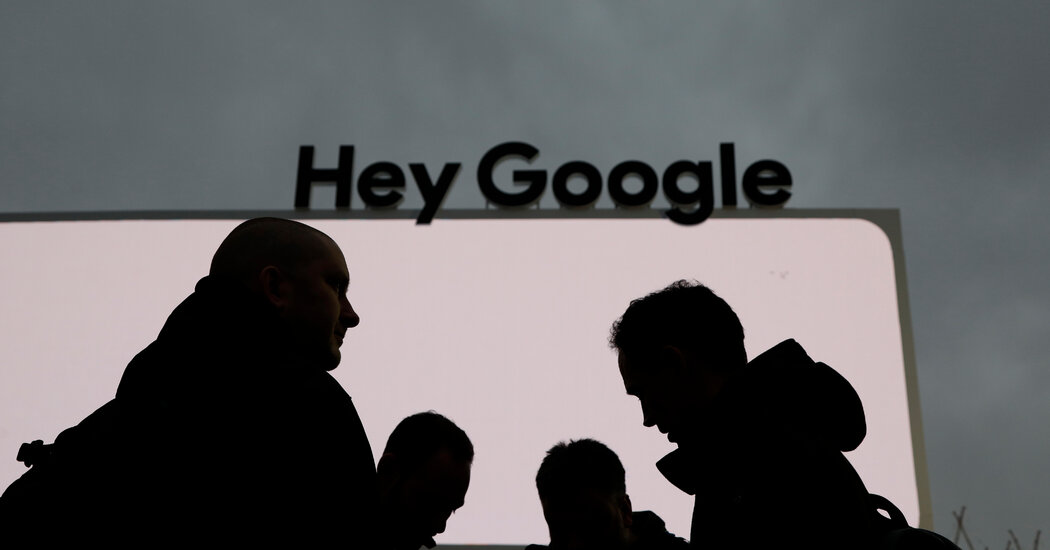
The internet is changing, including how much we pay for content and the ads and brands we see.
That’s because Apple and Google, two hugely influential tech companies, are rolling out privacy protections that hinder marketers from gaining access to our data when they show us ads. The changes have major repercussions for online advertising, which are a business foundation for the free apps and websites that many of us use, like Facebook, TikTok and the Weather Channel. Those sites and apps now have to come up with new ways to show ads or make money.
Here’s what that means for you.
What’s happening?
For decades, advertisers relied on “cookies,” pieces of code planted in web browsers that can follow our personal web browsing to track us online and show us relevant ads. When smartphones came along, marketers also used trackers inside mobile apps to follow people across apps and websites.
These advertising technologies became incredibly potent and effective — if you shopped for shoes, shoe ads would follow you around the internet — but with major downsides. It enabled marketers to build hyper-realistic profiles of us that were hardly anonymous. It also opened doors for bad actors to steal people’s data and spread misinformation.
Widespread concern over online privacy in recent years started an industrywide discussion about what to do about this tracking. Apple and Google have stepped in with different solutions.
What are Apple and Google doing?
In 2017, Apple debuted a version of its Safari web browser that prevented the technology used by marketing companies to follow people from site to site. This year, Apple also released App Tracking Transparency, a pop-up window in iPhone apps that gives people the choice to not be tracked across apps and websites.
In 2019, Google announced the Privacy Sandbox, a set of ideas for developing a more private web. The company has plans for its Chrome web browser to block tracking cookies in 2023 in favor of a new system for advertisers to target us with ads.
That system might be one called Federated Learning of Cohorts, or FLOC. It involves grouping people together based on their interests. If you visit websites related to tennis and dogs, you may be placed into a cohort of people who share those interests. As soon as a website loads, it scans the browser for an identification code to see what group you belong to. The website then can decide what types of ads to show your group.
In theory, this would be less invasive than today’s tracking methods because advertisers wouldn’t have access to a cookie that contains your personal browsing history.
Because of the sheer reach of Apple’s and Google’s products — Google’s Chrome browser is No. 1 in the world, and Apple’s iPhone is the best-selling phone — advertisers have no choice but to adapt. They now have to figure out new ways to show us ads, using less of our data. Some companies that relied on digital ads to appeal to people, such as small online publications, may not survive.
So what will the internet look like?
In the near term, digital ads are going to look different.
Longer term, the internet you see using Apple products may end up looking dissimilar from the one you see using Google products.
Let’s start with Apple. In the past, if you opened a free iPhone weather app, it may have used tracking technology to look at what you did in other apps and websites. The app would then present an ad for something specific to you, like a restaurant that you previously ordered takeout from.
But since that tracking can now be blocked, the weather app must rely on other data to serve an ad. That might be contextual information, such as the time of day. The upshot is that the ads you see might be less relevant and more random.
With Google, if the company adopts the FLOC system, that will also change the nature of the ads you see.
Let Us Help You Protect Your Digital Life
Today, when you use the Chrome browser to click on a pair of Nike sneakers, you are likely to see an ad for that specific shoe follow you from site to site and app to app. In the future, a website would lack the knowledge that you looked at those sneakers, but it would know that you were in a group that expressed interest in shoes. That means you might see ads for other athletic shoes, even if not for that specific sneaker.
Apple’s and Google’s changing approaches may lead web publishers to choose sides, said Brendan Eich, a founder of Brave, a private web browser. If publishers are happier with Google’s ad solution, they may design their websites to work well on Google’s browser and not so well on Apple’s.
That could result in a “fragmentation” of the web, where people see different versions of the internet depending on the browsers they use, Mr. Eich said.
What else does Apple’s version of the internet mean for me?
The good news is that you will have more privacy online because of Apple’s changes.
But there’s a trade-off. Ultimately, many online products and services may cost more.
Today, small brands can spend a modest amount to target specific customers with ads across different websites and apps. But since this type of tracking can now be blocked on Apple devices, small companies may have to choose big brands like Facebook, Google and Etsy and advertise within each of those platforms.
In other words, businesses may be forced to spend more to advertise their products across multiple properties. Those higher costs would then be passed on to you, leading to price increases.
This is already happening. Chantal Ebanks, the owner of an online beauty supply shop, Bella Chauni, said that after Apple’s new ad blocking went into effect, her digital promotions on Facebook’s ad network no longer reached as many customers. As a result, her sales shriveled from thousands of dollars a month to hundreds. To compensate, Ms. Ebanks raised the price for a popular hair care product to $13.98 from $9.99 and is testing ads on other platforms like Pinterest.
Eric Seufert, a marketing strategist, predicted that more iPhone apps would move away from trying to make money off ads. He said they would start charging people for subscriptions or extras inside apps.
The shift to subscriptions has happened for a while, but it’s expected to accelerate. Between 2017 and 2020, the portion of top video games offering subscriptions in Apple’s U.S. App Store grew to 18 percent from 11 percent, according to a study by SensorTower, a mobile app research firm.
What else do Google’s changes mean for me?
As Google tries to reinvent ad targeting rather than killing it completely, its users will continue to see targeted ads. The company’s proposed advertising methods could also create new issues, security experts said.
Advertisers could combine people’s FLOC IDs with other information to continue pinpointing them, said Eric Rescorla, the chief technology officer at Mozilla, which makes the Firefox web browser.
The system could also place vulnerable people into groups where they are disproportionately targeted by exploitative ads, said Bennett Cyphers, a technologist for the Electronic Frontier Foundation, a digital rights nonprofit. Those who earn a lower income, for instance, could end up in a group that receives ads for payday loans and cryptocurrency scams, he said.
Google said FLOC was one of many proposals it was testing. Ben Galbraith, director of product management for Google’s Chrome browser, said simply blocking cookies would lead to worse privacy outcomes because advertisers would find more invasive ways to track people.
The company also said that it had mechanisms to prevent people from being grouped into sensitive cohorts and that FLOC IDs would change every seven days to prevent them from being tracked.




